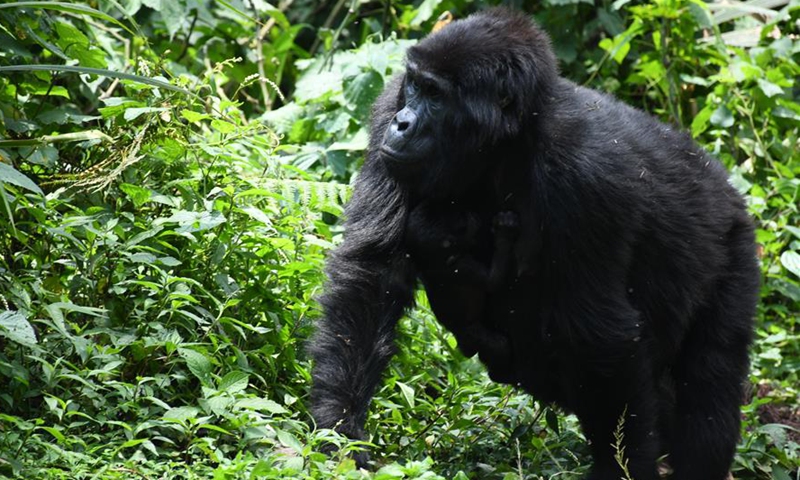
A mountain gorilla moves at Bwindi Impenetrable National Park in Kanungu district, Uganda, Sept. 21, 2020. Uganda has fully opened all its national parks as the country continues to ease lockdown restrictions. (Photo by Ronald Ssekandi/Xinhua)
A lowland gorilla, a critically endangered species, was born in the Democratic Republic of the Congo's Virunga National Park, authorities said.
Conservationists have long sought to protect the world heritage site's gorilla population even as violence and instability has plagued the DRC's eastern provinces over 25 years.
"We're excited to announce the first lowland gorilla birth of the year! Rangers discovered the newborn during a patrol in the Tshiaberimu area yesterday," park authorities tweeted late Friday.
"Rangers are working hard to safeguard this vulnerable population which now stands at seven individuals," it added.
The global population of lowland gorillas has plunged from around 17,000 to fewer than 6,000 today and they continue to experience a rate of decline of 5 percent per year, according to the park.
They are often illegally hunted for bushmeat.
Seventeen mountain gorillas, a close cousin of the lowland gorilla, were born in the park in 2021.
Situated on Democratic Republic of the Congo's borders with Rwanda and Uganda, Virunga covers around 7,800 square kilometers of the North Kivu Province, of which Goma is the capital.
Inaugurated in 1925, it is the oldest nature reserve in Africa and a sanctuary for the rare mountain gorillas, which are also present in neighboring Rwanda and Uganda.
Virunga has also become a hideout for local and foreign armed groups that have operated in eastern Democratic Republic of the Congo for around 25 years.
AFP
